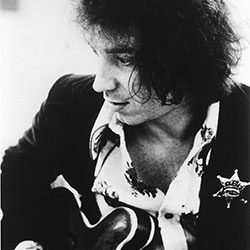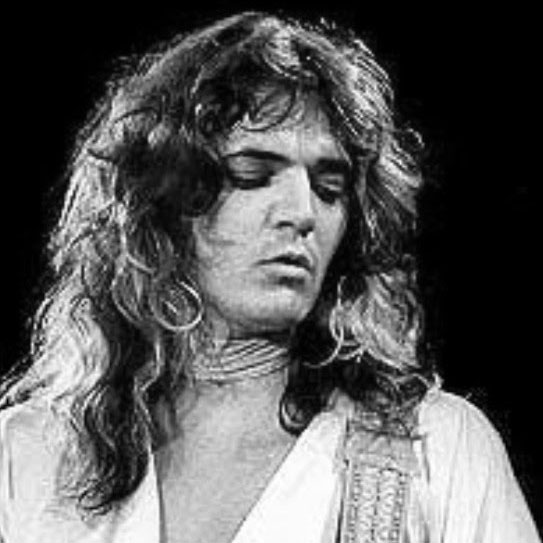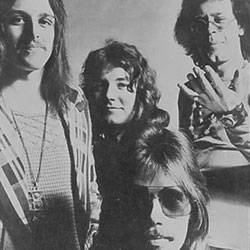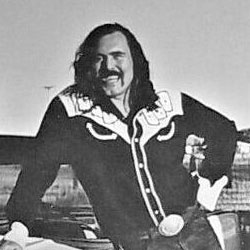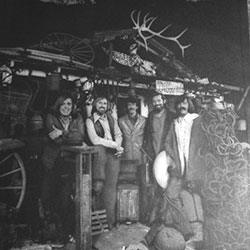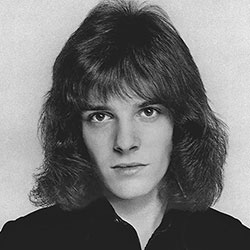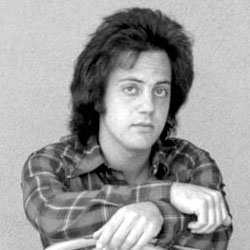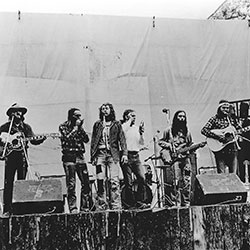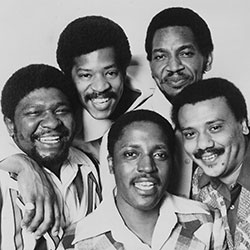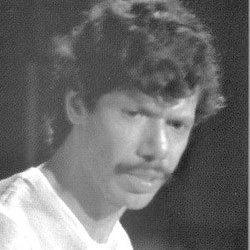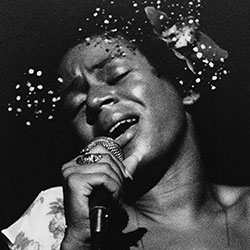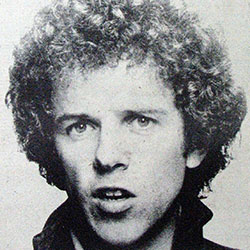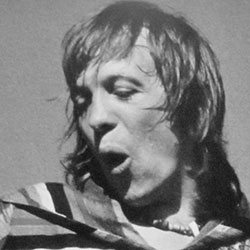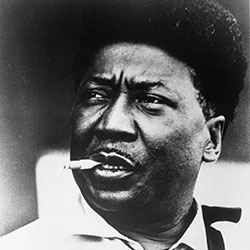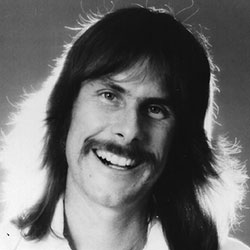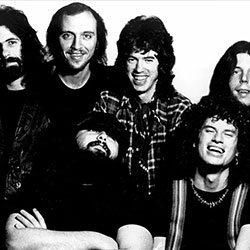KFML radio 1969-1974
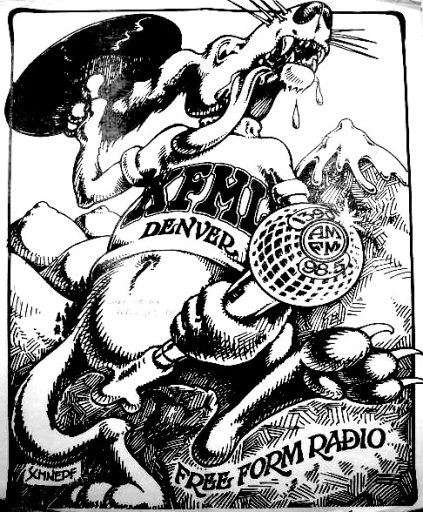
In the late ’60s, the freedom sought by a new generation came on the radio via the FM band—underground, or free-form, radio. In Denver, KFML was legendary. The station permitted, nay encouraged, disc jockeys to select their own records to play, mostly based in rock but ranging from country and folk music to jazz and blues. The best of them mastered the art of the segue, transitioning between styles and genres. Commercials were written and produced in-house. For a subversive show called High Street, listeners were instructed to switch on an old movie on a local television station, turn down the volume and then tune into KFML; the High Street cast would adlib the dialogue, creating a killingly funny plotline (the TV station eventually sued). This irreverent approach extended to interviews, newscasts and extemporized live performances. KFML also entered into an agreement with ListenUp, the local audio/video retailer and the sound company for Ebbets Field, Denver’s premier concert venue of the early ’70s. The station would simulcast an act’s first show live—or record it for rebroadcast—to promote the subsequent nights. An amazing array of memorable performances from every genre aired. Sugarloaf guitarist Bob Webber at Sugarloaf Canyon Productions has added remastering magic of original analog tapes exclusively for Colorado Music Experience.
Elvin Bishop
Travelin’ Shoes
Having left the Butterfield Blues Band but not the country-soul aspects of his fun-loving Pigboy Crabshaw persona, guitarist Elvin Bishop moved from the San Francisco area to Macon, Georgia, where he explored the double-lead guitar possibilities that the Allman Brothers Band had made famous. He hit his stride with “Travelin’ Shoes,” his first charting single.
Commander Cody & His Lost Planet Airmen
Beat Me Daddy Eight to the Bar
Led by high-energy pianist and vocalist George Frayne, alias Commander Cody, the band’s rowdy style of progressive country music was beloved by hippies and rednecks alike. The boys dusted off the boogie-woogie beat of “Beat Me Daddy Eight to the Bar,” a 1940 song.
The Dillards
Old Home Place
In the ’60s, the revered country-rock quintet from the Ozarks in Missouri introduced bluegrass music into the mainstream, appearing as “The Darlings,” a goofy backwoods family on TV’s The Andy Griffith Show. The members became key—albeit unrightfully ignored—players in the Laurel Canyon scene. They dropped by KFML to play and visit with DJ Jerry Mills.
Peter Frampton
Do You Feel Like We Do
The double album set Frampton Comes Alive! made him a mass-market phenomenon in 1976, but before that “overnight success,” the rock guitarist formed an official touring unit dubbed Frampton’s Camel and built a following through four years of near-constant touring.
Billy Joel
The Entertainer
Bitter over his first major hit and signature song “Piano Man” being released in a single edit, Joel wrote “The Entertainer” for his 1974 album Streetlife Serenade, a cynical take on the fleeting fame of a musician, public tastes blowing hot and cold and the music industry’s abuse.
Ozark Mountain Daredevils
If You Wanna Get to Heaven
A group of country-rock exponents, all natives of southern Missouri, the Ozark Mountain Daredevils got established with their debut single. “If You Wanna Get to Heaven,” a Top 30 hit in the summer of 1974, was distinguished by co-founder Steve Cash’s harmonica playing.
The Persuasions
Searchin’ for My Baby
An a cappella group of street performers, the Persuasions sang in subway corridors around Brooklyn before benefiting from an association with Frank Zappa. The determined ensemble’s artful vocalizing never generated any hits, but the style was kept alive on many fine albums.
Return to Forever
The Shadow of Lo
With guitarist Al Di Meola, bassist Stanley Clarke and drummer Lenny White, Chick Corea began employing synthesizers and electric instruments, playing jazz fusion colored by progressive rock. White’s lengthy composition “The Shadow of Lo” flashed many shifts in mood.
Minnie Riperton
Reasons
Known for her angelic multi-octave voice, Riperton had her life cut short by cancer at the age of 31. She had reached the apex of her career with Perfect Angel, her 1974 gold album. “Reasons” was the first single released; the fourth, “Lovin’ You,” was a blockbuster that went to No. 1.
Leo Sayer
Giving It All Away
A top pop act on both sides of the Atlantic in the late ’70s, British singer-songwriter Sayer began his music career co-writing songs with David Courtney, including “Giving It All Way,” which Roger Daltrey of the Who interpreted for his debut solo album and scored a hit. Sayer performed his version at Denver’s Ebbets Field wearing a Pierrot costume and makeup.
Muddy Waters
The Thrill Is Gone
Blues giant Muddy Waters was 60 by the time he played Ebbets Field, and his band ran like a well-oiled machine. During the show, Waters was clearly tired, so B.B. King, performing down the street at the Auditorium Theatre, jammed in a blues summit and tore the house down.
Tim Weisberg
California Memories
An undermanned flute section in his junior high school band inspired Weisberg to take up the instrument. He worked as a studio musician before getting to put out his own albums of mellow, smooth instrumentals. Touring relentlessly, his jazz-pop sounds found a following.

